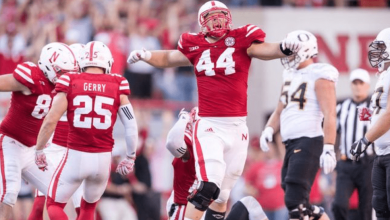Lee Richardson The United States is still a land of opportunity with online gaming and sports betting
This article originally appeared in the November / December issue of the magazine Gambling Insider : Lee Richardson, CEO of Gaming Economics and co-founder of The Big Betting Balagan, studies the dynamic market and the accelerating growth of online gaming and the talent needed to sustain it.
2020 was the year defined by the pandemic. But what is it like in the US sports betting and online gaming sectors? Who came out and what failed? How has this affected these promising sectors and what are the problems still ahead?
There is a lot to unpack, but as of December 2019, online gaming results in the two largest states that currently allow it, New Jersey and Pennsylvania, are impressive as the total gross winnings have been increasing every month since then and are now generating annual gross profit. winnings of approximately $ 1.7 billion. This is more than twice the amount at the beginning of the year, and there is a high probability that it will reach the annual market of $ 2 billion by 2021. With the advent of new online states like Virginia and Michigan and others to adopt online gaming soon, the multi-state gross winning online gaming market of $ 3 billion seems highly achievable by the end of next year.
"Industry observers now see a significant and growing gap between the demand for experienced and proven operational, commercial, marketing and managerial roles and the supply of such people in the US market."
This level of growth and player adoption bodes well for these operators - and suppliers - with the proven form on both sides of the digital coin for online gaming and sports betting. Sports betting will drive growth for the gigantic new Caesars / William Hill combination with Roar Digital (MGM / GVC) and the global online market leader, bet365. Playtech also recently announced deals in New Jersey with both of the latter, so we can expect their share of the U.S. B2B market to increase in 2021 as well.
But not only tier 1 operators or their vendors benefit.
Listed on the London AIM Stock Exchange since 2013, Gaming Realms remains small by industry standards, but has nevertheless quadrupled its market capitalization since February 2020, largely thanks to its success abroad. The success of the Slingo IP-protected product family has enabled it to gain a valuable share of the fast-growing online gaming market in the United States, with many tier 1 customers ranging from Golden Nugget to Rush Street Interactive, relevant market leaders in the state of New Jersey. and PA.
However, one possible obstacle to the current growth trajectory in both the sports betting and online gaming sectors is the growing evidence of the talent gap. Currently, industry observers see a significant and growing gap between the demand for experienced and proven operational, commercial, marketing and managerial roles and the supply of such people in the US market.
During the Big Betting Balagan industry podcast in September 2020 On the subject, guest speaker Rob Dowling, CEO of the Conexus Group, which owns Pentasia, an industry-leading recruit, agreed that the talent gap was an issue. "Supply does not meet demand," he said. "The demand for talent in the online gaming industry has never been greater, and the war for technical skills is as fierce as ever ... It's a pity we can't move more talent to the United States."
The impact of the pandemic on games, as might be expected, has resulted in a retirement from retail sales that appears to continue for the foreseeable future. This change will have different effects on the different supplier and operator profiles in the sector. For example, a sports betting study conducted prior to Covid 19 in one of the major US states (with an economy about the same size as Sweden) found a likely need for up to 5,000 Self-Service Betting Terminals (SSBTs). These could potentially be located at thousands of lottery outlets to provide access to sports betting for retail lottery customers as well as reach new customers through new bars, restaurants and hotels.
In the post-pandemic world, this level of demand now seems less likely, with the result that the emphasis on purely digital, non-retail sports betting solutions is instead at the expense of these SSBT providers. As always, there will be winners and losers on the supply side.
And as part of a recent and largely unexpected development, Costa Rica-based bookmaker 5Dimes has reached an agreement with the US Department of Justice of $ 46.8 million, which is apparently intended to allow legal application for a sports betting license in the future. Remember that the entire US betting market remains dominated by the offshore sector, and the American Gaming Association believes it still maintains the 80%'s market share two and a half years after PASPA allowed it to legally enter outside of Nevada. Gaming Economics believes that with this progress, other offshore operators may follow suit, leading to an acceleration of the legal sector's share of the overall sports betting market in 2021.
“The impact of the pandemic on games, as could have been predicted, has led to an exit from retail sales that appears to continue for the foreseeable future. This change will have different effects on different profiles of suppliers and operators in this sector. '
This development alone may lead to even greater interest in the sector on the part of capital markets. After a year full of unprecedented declines and increases in the value of gaming companies, we have also witnessed record levels of M&A and fundraising activity through SPAC (Special Purpose Acquisition Company), which I will voluntarily admit I had not heard of at that time. last year.
Encouragingly, this turbulent year ends with a seemingly full of opportunities for both operators and suppliers from fresh sources of capital, more regulated nations, the faster-growing legal sports betting and online gaming sectors, and perhaps a smaller offshore market. When juxtaposed with the growing talent gap in the industry and the constant turning away from retail, 2021 is likely to be just as challenging and as dynamic as the previous fairly crazy several months.



